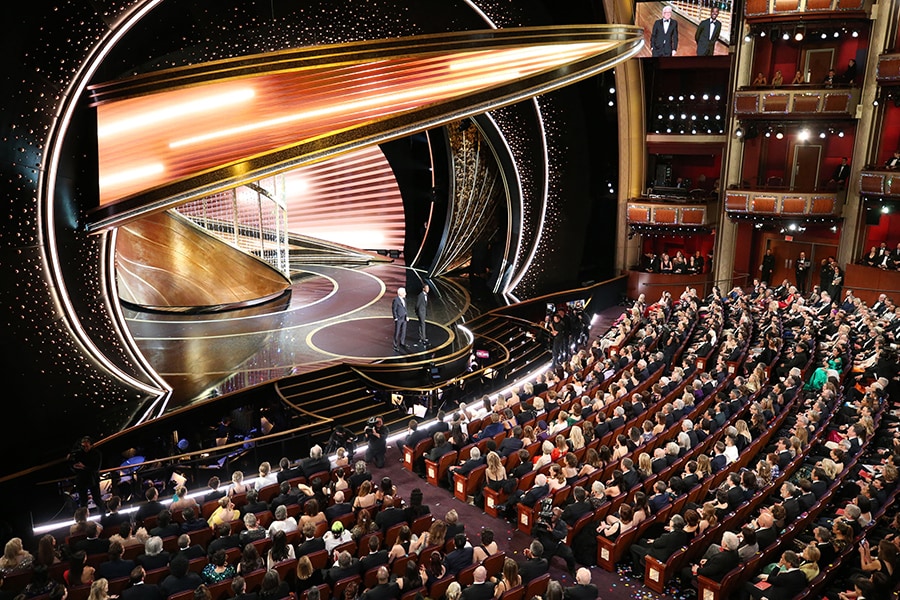
The 2021 Oscars will be delayed, thanks to coronavirus
The 93rd Academy Awards, slated for February 28, 2021, have now been pushed to April 25, owing to the Covid-19 pandemic
 Steve Martin and Chris Rock during the 92nd annual Academy Awards at the Dolby Theater in Los Angeles, Feb. 9, 2020. The Academy of Motion Picture Arts and Sciences said on Monday, June 15, that it would push back the next Oscars ceremony to April 25 from Feb. 28, citing the coronavirus pandemic. Image: Noel West/The New York Times
Steve Martin and Chris Rock during the 92nd annual Academy Awards at the Dolby Theater in Los Angeles, Feb. 9, 2020. The Academy of Motion Picture Arts and Sciences said on Monday, June 15, that it would push back the next Oscars ceremony to April 25 from Feb. 28, citing the coronavirus pandemic. Image: Noel West/The New York Times
LOS ANGELES — The Academy of Motion Picture Arts and Sciences said on Monday that it would push back the next Oscars ceremony to April 25 from Feb. 28, citing the coronavirus pandemic. The postponement, the fourth since the Academy Awards were introduced in 1929, could prompt the Golden Globes and other entertainment award shows to recalibrate.
The eligibility window for best picture consideration at the coming Academy Awards was extended to Feb. 28 instead of Dec. 31. to make up for the closing of theaters between March and June. The academy did not say whether the April 25 show on ABC would involve the usual red carpet and live audience.
“Our hope, in extending the eligibility period and our awards date, is to provide the flexibility filmmakers need to finish and release their films without being penalized for something beyond anyone’s control,” David Rubin, the academy’s president, and Dawn Hudson, the organization’s chief executive, said in a statement. “For over a century, movies have played an important role in comforting, inspiring and entertaining us during the darkest of times. They certainly have this year.”
The academy consulted with the Los Angeles County Department of Public Health in selecting a new date for the Oscars. “We find ourselves in uncharted territory this year and will continue to work with our partners at the academy to ensure next year’s show is a safe and celebratory event,” Karey Burke, president of ABC Entertainment, said in a statement.
The Oscars telecast is a big business, generating 83% of the academy’s roughly $150 million in annual revenue. ABC controls broadcast rights until 2028 at a cost of about $75 million a year. The network seeks nearly $3 million per 30-second commercial.
©2019 New York Times News Service




